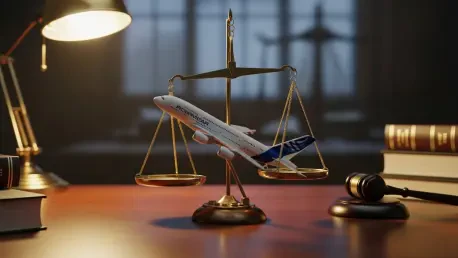Understanding Nigeria’s Aviation Landscape
Nigeria’s aviation industry stands as a critical pillar of the nation’s economy, facilitating the movement of millions of passengers and goods annually while connecting urban centers and remote regions alike. With major hubs in Lagos, Abuja, and Port Harcourt, the sector supports commerce, tourism, and international trade, contributing significantly to GDP. However, persistent challenges have often overshadowed these achievements, casting doubt on reliability and efficiency.
Key players in this space include domestic airlines like Air Peace, Arik Air, and Dana Air, alongside international carriers operating within the country. The Nigerian Civil Aviation Authority (NCAA) serves as the primary regulatory body, tasked with ensuring compliance with safety and operational standards. Despite its efforts, flight delays and cancellations remain rampant, driven by a mix of operational hiccups and external factors, leaving passengers stranded and frustrated at airports nationwide.
The ripple effects of these disruptions extend beyond mere inconvenience, eroding public confidence in air travel and straining the industry’s reputation. Passengers frequently face unexpected costs, missed business opportunities, and personal setbacks due to unreliable schedules. Addressing these issues has become a pressing concern for regulators and operators alike, as the sector’s growth potential hinges on restoring trust and consistency.
The Persistent Problem of Flight Disruptions
Trends in Delays and Cancellations
Flight disruptions in Nigeria have become a frustrating norm, with delays and cancellations occurring at an alarming frequency across major airports. Data indicates that operational inefficiencies, such as poor aircraft maintenance and inadequate scheduling, account for a significant portion of these issues. Additionally, environmental factors like adverse weather conditions often exacerbate the problem, particularly during the rainy season when visibility and safety concerns lead to grounded flights.
Beyond these root causes, a lack of effective communication between airlines and passengers during disruptions fuels dissatisfaction. Many travelers report being left in the dark about rescheduling or refunds, amplifying their grievances. This recurring pattern has sparked a growing chorus of demands for accountability, with consumer advocacy groups urging stricter oversight of airline practices to curb these pervasive setbacks.
Impact on Passengers and Industry Reputation
The toll of flight disruptions on passengers manifests in both tangible and intangible ways, from financial losses due to missed connections to emotional stress from uncertainty. Anecdotal evidence abounds of travelers stranded overnight without assistance, highlighting a gap in airline responsibility. Such experiences have steadily diminished trust in domestic carriers, pushing some to opt for alternative modes of transport despite longer travel times.
On a broader scale, the negative perception of Nigeria’s aviation sector hampers its competitiveness in the global market. International partners and investors often cite unreliability as a deterrent, limiting opportunities for expansion and collaboration. Economically, the fallout affects tourism and business travel, underscoring an urgent need for reforms to salvage the industry’s standing and safeguard national interests.
Socially, the impact reverberates through communities dependent on air travel for family connections and emergency needs. Stories of missed life events or delayed medical trips paint a grim picture of the human cost involved. Without swift intervention, these disruptions risk becoming a defining feature of the sector rather than a solvable challenge.
Challenges Facing Airlines and Regulators
Nigeria’s airlines grapple with a host of operational hurdles that complicate efforts to maintain consistent service. Infrastructure deficits, such as outdated airport facilities and limited runway capacity, often bottleneck operations, leading to inevitable delays. Compounding this are logistical constraints, including fuel scarcity and high maintenance costs, which strain airline budgets and disrupt schedules.
Environmental challenges also play a significant role, with unpredictable weather patterns frequently grounding flights for safety reasons. Beyond these external factors, internal issues like inadequate staff training and poor crisis management hinder effective responses during disruptions. Reports of airline personnel abandoning posts at critical times leave passengers unattended, placing undue pressure on NCAA Consumer Protection Officers to step in and manage the chaos.
For regulators, enforcing compliance amidst these complexities remains a daunting task. The NCAA faces the dual challenge of balancing airline support with strict oversight, often navigating resistance from operators citing financial strain. Additionally, the risk exposure of regulatory staff during passenger unrest highlights systemic gaps in coordination, necessitating stronger policies to ensure accountability and safety across the board.
NCAA’s New Policy: A Game-Changer for Accountability?
In a bold move to tackle entrenched issues, the NCAA has rolled out a stringent policy aimed at enforcing passenger rights and holding airlines accountable for disruptions. A key provision mandates hotel accommodations at the airline’s expense for passengers affected by late-night delays between 10:00 PM and 4:00 AM. This measure seeks to alleviate the burden on travelers left stranded during inconvenient hours, prioritizing their well-being.
Further intensifying its approach, the NCAA has adopted a strategy of naming and shaming non-compliant airlines, a directive backed by the Federal Government and the Minister of Aviation and Aerospace Development. This public exposure aims to deter violations by leveraging reputational consequences while fostering transparency in the sector. The policy also addresses unprofessional conduct, explicitly condemning airline staff abandoning posts during crises, and vows to impose sanctions for such lapses.
Underpinning these measures is a broader push for professionalism and adherence to global standards. The NCAA emphasizes that operational challenges, while acknowledged, do not excuse negligence or non-compliance with regulations. By aligning with federal directives, the agency signals a commitment to transforming the aviation landscape through rigorous enforcement and a passenger-centric focus, setting a precedent for accountability.
Future Outlook for Nigeria’s Aviation Sector
The introduction of the NCAA’s policy holds promise for curbing flight disruptions and enhancing service quality in Nigeria’s aviation industry. If effectively implemented, the emphasis on passenger rights and strict penalties for non-compliance could compel airlines to prioritize reliability and customer care. Over the next few years, from 2025 to 2027, consistent enforcement might yield measurable improvements in on-time performance and passenger satisfaction metrics.
Government support will be crucial in sustaining this momentum, particularly through investments in airport infrastructure and technology to address operational bottlenecks. Collaborative efforts between regulators and airlines could also foster innovative solutions, such as better weather forecasting tools or streamlined maintenance protocols. These advancements, paired with stricter regulations, have the potential to elevate industry standards and rebuild public trust.
Ultimately, the long-term success of these reforms hinges on a cultural shift within the sector toward accountability and excellence. Airlines must internalize the importance of transparency and proactive communication during disruptions to regain passenger loyalty. As the NCAA continues to refine its oversight mechanisms, the vision of a dependable and world-class aviation system in Nigeria appears increasingly attainable, provided all stakeholders commit to sustained progress.
Conclusion: A Step Toward Reliable Aviation in Nigeria
Reflecting on the comprehensive measures introduced by the NCAA, it is evident that a significant stride has been taken to address the longstanding scourge of flight disruptions in Nigeria. The policy’s focus on passenger rights and airline accountability marks a pivotal moment in the industry’s journey toward reliability. By enforcing accommodations for late-night delays and publicly identifying non-compliant operators, the agency lays a foundation for meaningful change.
Looking ahead, the next steps demand unwavering collaboration between regulators, airlines, and government bodies to tackle infrastructure deficits and operational inefficiencies. A renewed emphasis on training airline staff to handle crises effectively emerges as a critical area for investment. Additionally, leveraging technology to improve scheduling and communication offers a practical path to minimizing disruptions.
Beyond immediate fixes, stakeholders need to consider fostering a culture of excellence that prioritizes passenger trust as a core value. Initiatives to regularly assess policy impact and adapt to evolving challenges will ensure sustained progress. These actionable considerations provide a roadmap for transforming Nigeria’s aviation sector into a model of efficiency and dependability, setting an inspiring precedent for other industries to follow.









